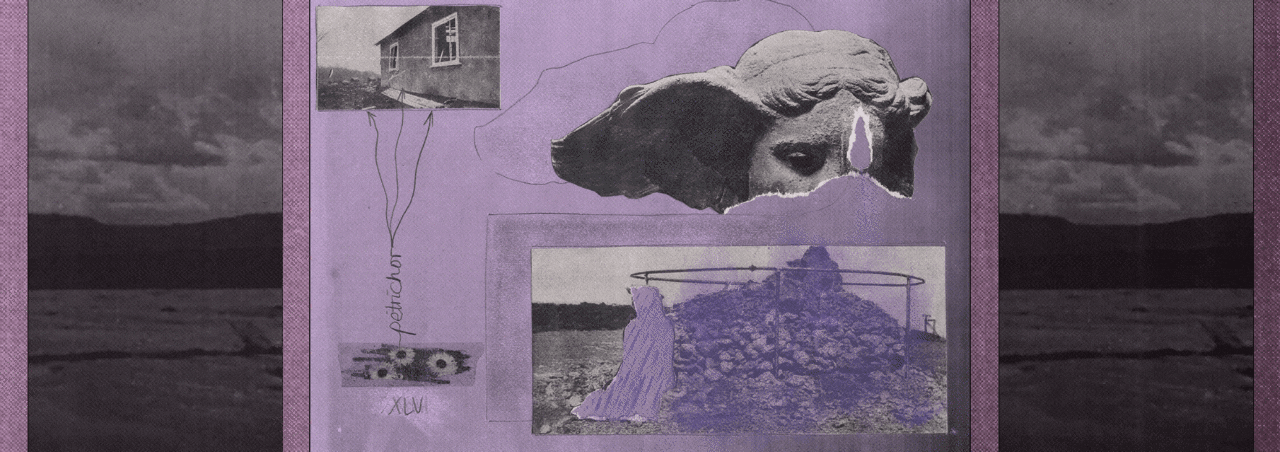All photos by Mhairi Law
(I)
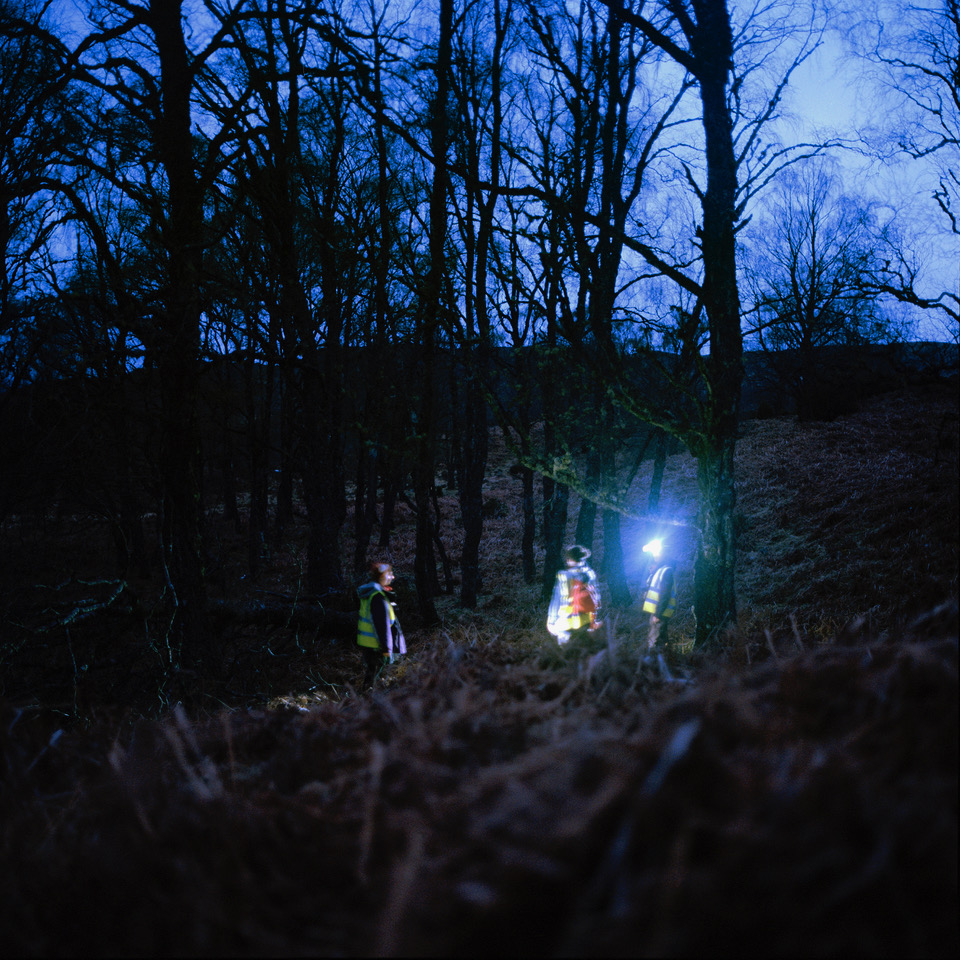
I felt very natural
very human
on my nights as a wolf
walking the routes
as tracker and hunter
connected to the land
with favorite places for sleeping
and spots to watch from
waiting by the tree-line at dusk
content to be silent
becoming part of the wood
familiar with nooks
and crannies
patterns of growth
and decay
I felt safe in the woods
with an underlying awareness
I had a purpose
when I’m out there
I want for nothing
(except maybe dry socks)
when I’m back home
I want more than anything
to go back.
(II)
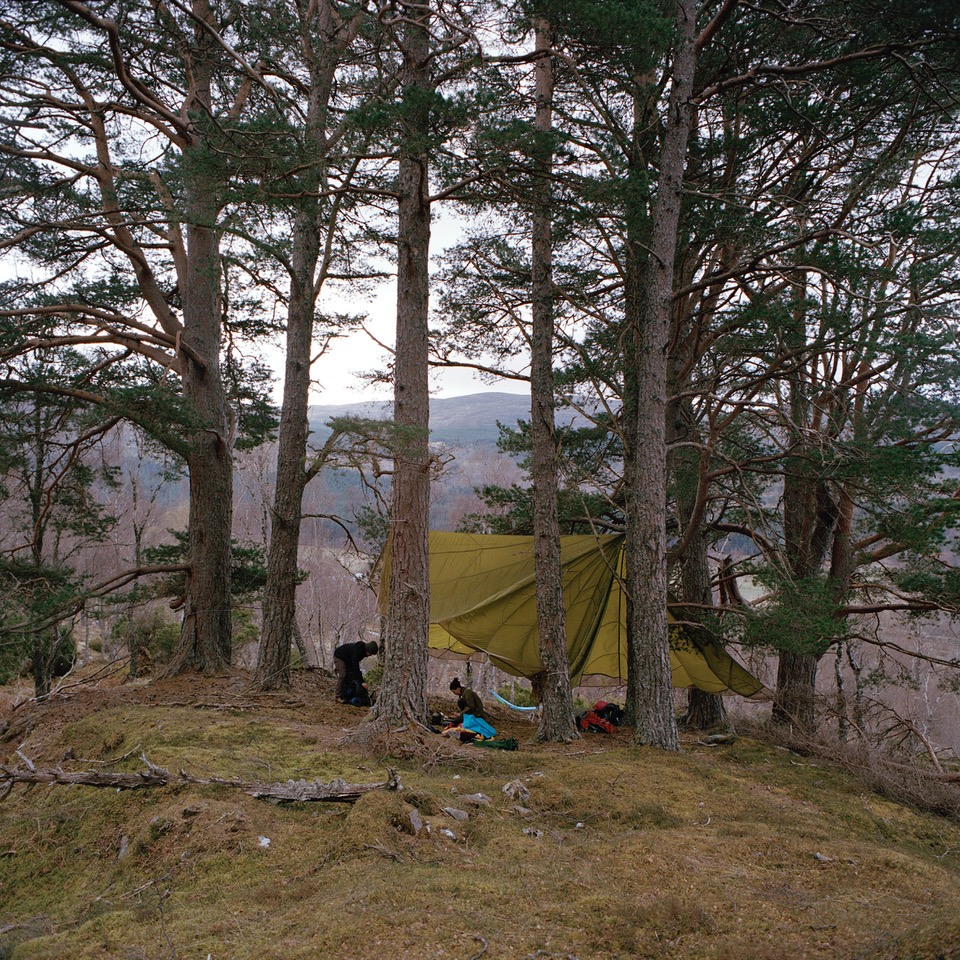
looking for signs
hoof-
prints
scat
hair
in the dark
trails
head-
torches
sniffing the air for
the musty order
bright reflections
of cornea
your senses pick out
faint smell
of something
that just passed
(III)
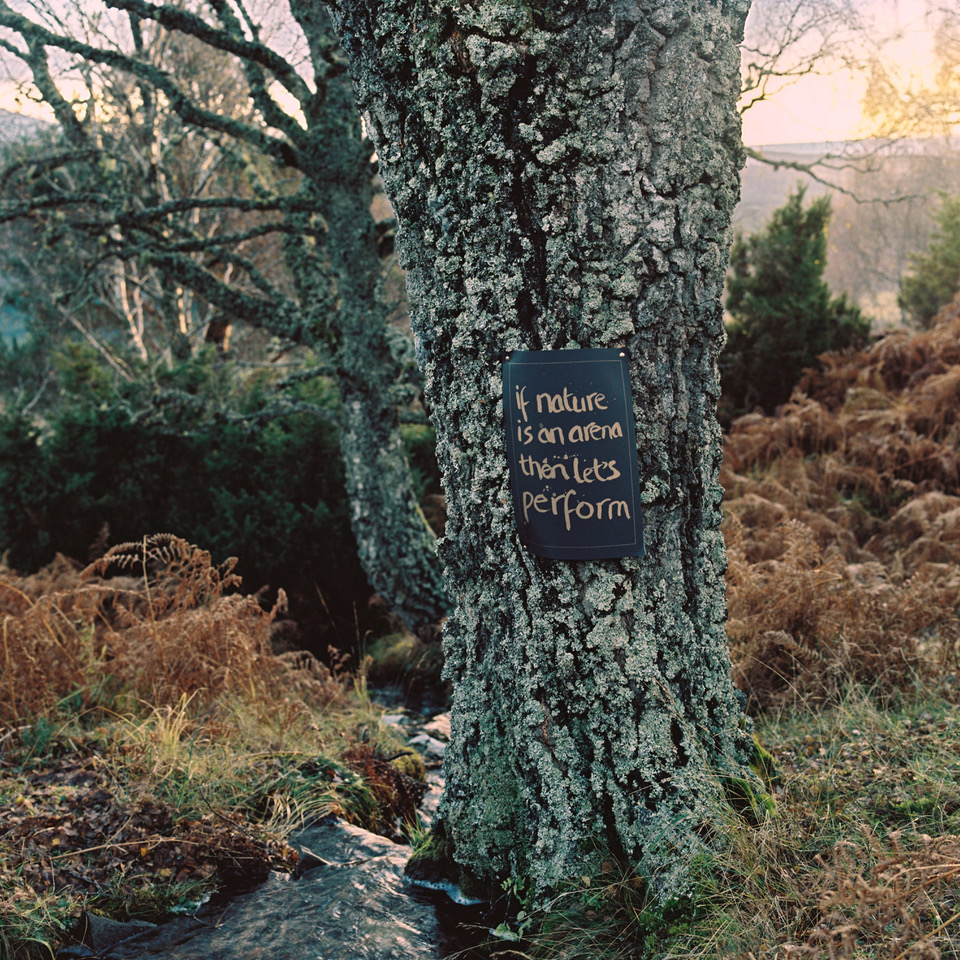
while being a wolf
I dreamt of deer
and the moon
because of the dreamlike nature
of the nights by night
the veil becomes thinner
lucid dreaming easier
(IV)
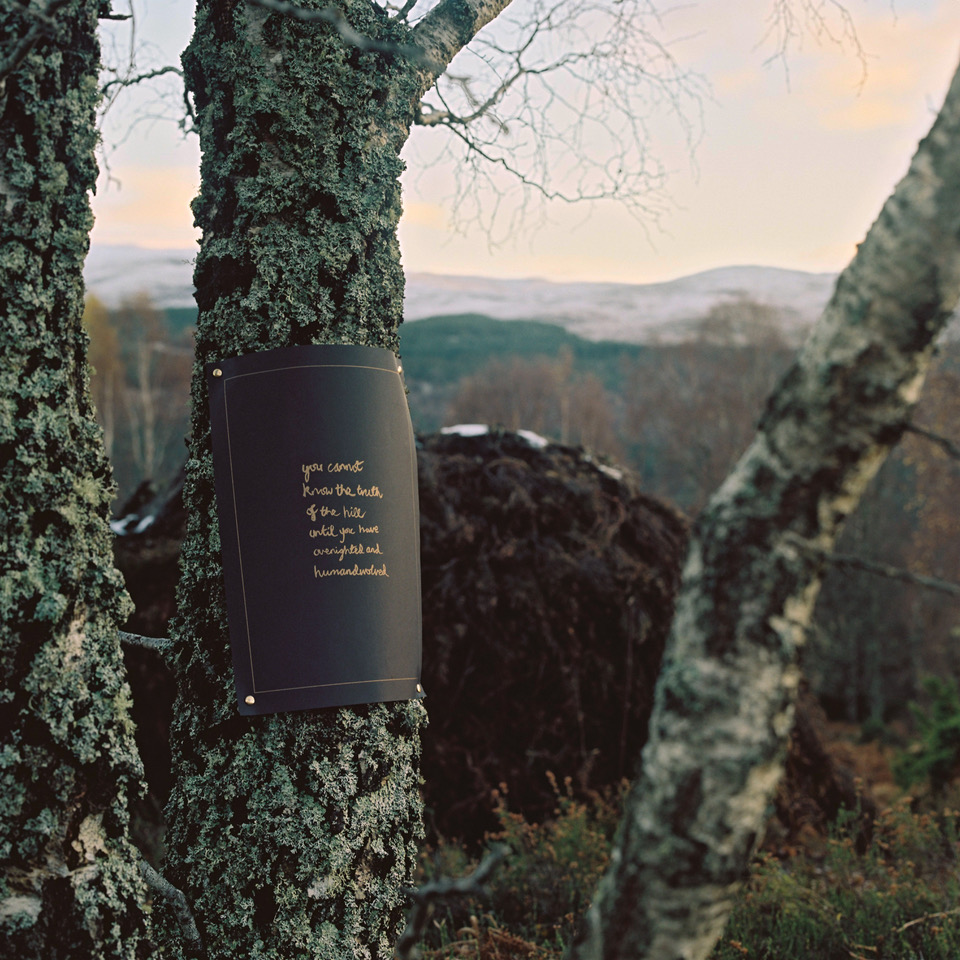
we sit and catch our breath under a clear night sky
marveling at Sirius spanning the horizon
switch off the head-torches it’s almost full moon
in the darkness everything’s still
cool air in my nostrils water trickling or rushing
birch leaves rustling
the heather churring snipe
stirring and woodcock overhead
snow- whisper
flakes down*
alk looking into the open eye of a dying bird
* the odd snowflake
bounces off my nose
with a small sound
(V)
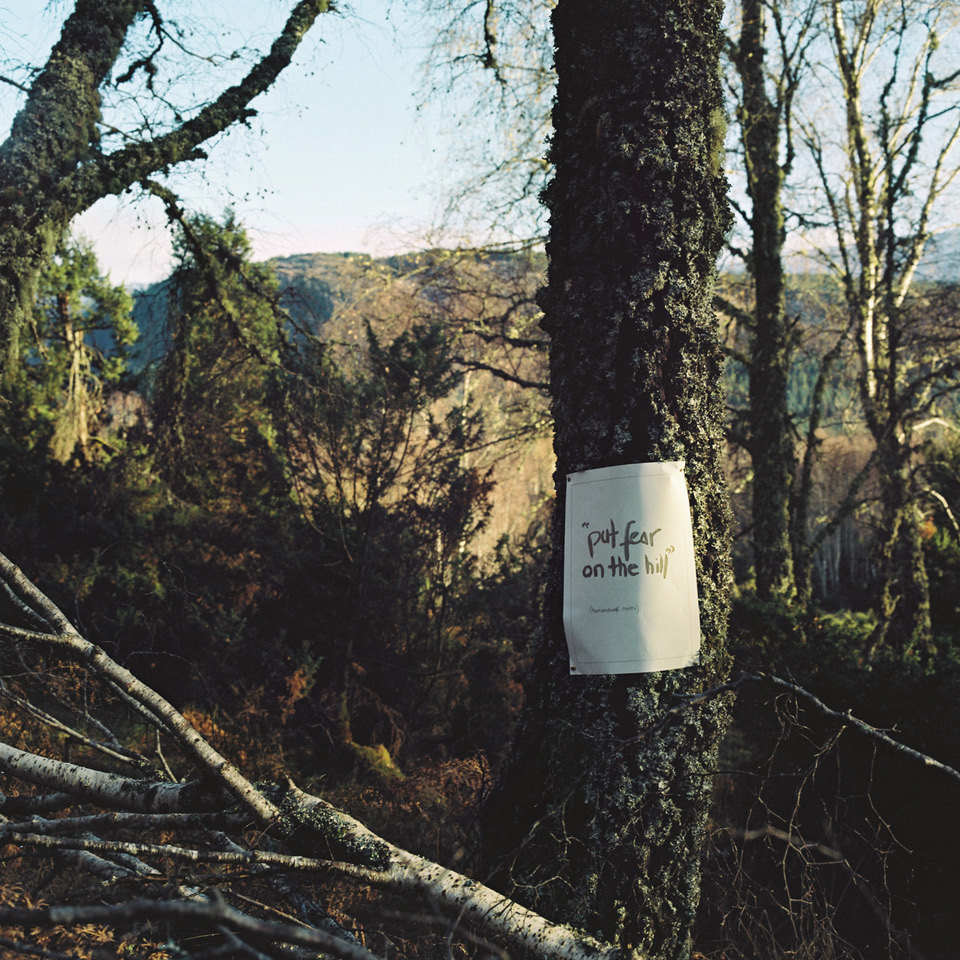
we
being human I cannot say what being a wolf feels like
are
no more than a wolf would know what being human means
two
but all living things share a sense of space
separate
that they come to know as home
species
where work, rest and life merge into the same thing
This poem is composed from answers to a questionnaire completed by ‘humandwolves – individuals who volunteered to join one of the four wolf packs, in 2016 and 2017, at Trees for Life, Dundreggan. Each pack spent one month as a ‘humandwolf’, warding deer from saplings. Project Wolf was conceived by Douglas Gilbert of Trees for Life.
The Humandwolves:
Martina Baltkalne
Millie Barrett
Nick Belt
Lotte Brockbank
Liv Glatt
Claire Large
Matt McMullen
Lorna Meek
Chanel Valento-Bovell
Alex Volkers
for Doug, who thought it into being
humandwolf: a creative
category confusion
*
as humandwolves we swear to use our animality
to aid our earthother brothers and sisters!
*
what happens on the hill
stays on the hill
*
as a pack we bear
our human responsibilities
not as principles but acts!
*
“put fear on the hill!”
(humandwolves motto)
*
the absent wolf is our alibi
*
if Nature is an arena
then let’s perform!
*
as humandwolves we cannot
remove inequalities between species
but we can highlight them
*
by day we plant trees
by night we haunt the hill
*
don’t confuse us with idealists –
we piss on tree roots with a purpose!
*
no howling
the pack doesn’t howl
never
*
we are the bleed between
genetics and ecology,
liberty and necessity
*
in equal measure the pack attempts
to apply the knowledge of wolves
and presence of humans,
and the presence of wolves
and knowledge of humans
*
mimesis is mimsy!
*
our totem is the pine
*
once we have finished with the deer
then we are coming for the lairds!
*
deer and humandwolves
share the same paths
*
we must learn to labour
within nature, as a pack
*
the humandwolf recreates
an ecological niche
*
the humandwolf pack extends
to the spectrum of ecological remedies
*
some inventions reveal the past anew –
humandwolves return the idea of The Wolf
*
This manifesto is a fictional text extending aspects of Project Wolf in a speculative manner. Doug Gilbert conceived the humandwolves for Project Wolf. A small ‘pack’ of people go out on the hill at night and their presence has the effect of warding deer from heavy browsing of saplings. They were active at Trees for Life’s estate in Glemmoriston for two Springs and had a positive impact. The text does not represent the views of individual humandwolves or Trees for Life. First published as an edition of posters, commissioned by Common Ground, (2017).
Alec Finlay (Scotland, 1966) is an internationally-recognised artist and poet whose work crosses over a range of media and forms. Much of Finlay’s work considers how we as a culture, or cultures, relate to landscape and ecology. Recently Finlay’s work has focussed on place-awareness, ecopoetics, and the relationship between ecological remediation and human recuperation. In 2020 he was awarded a Cholmondeley award for services to poetry.
NEXT >
< BACK
INDEX
